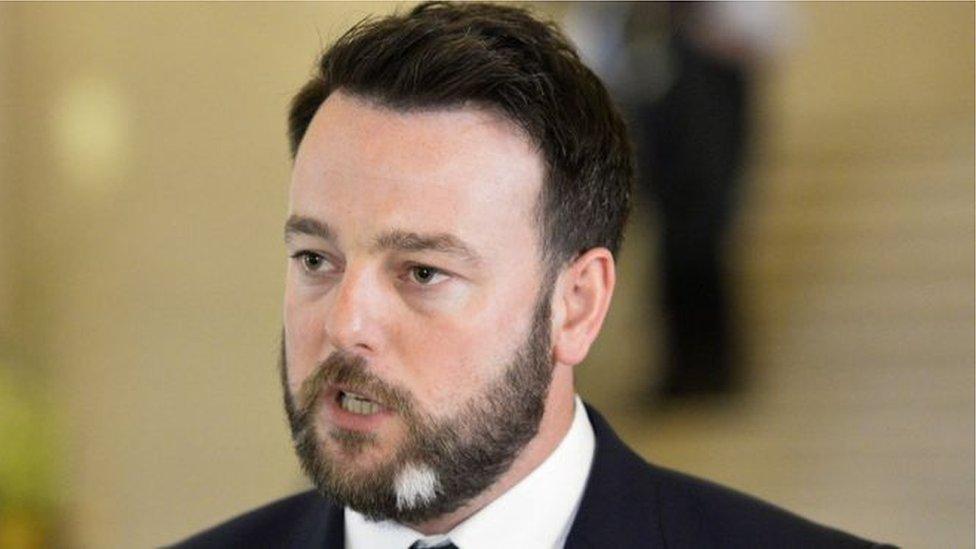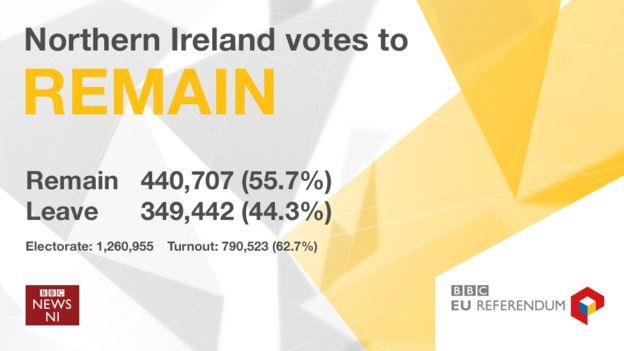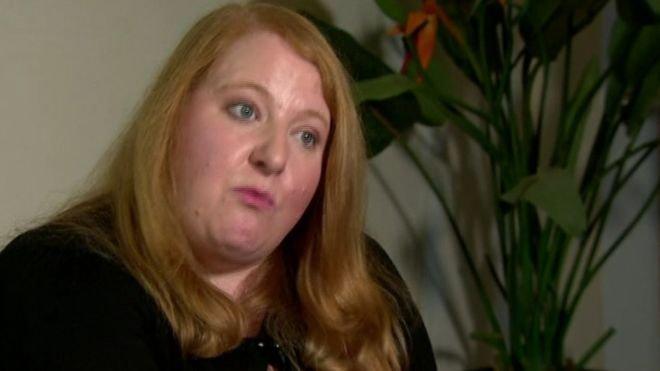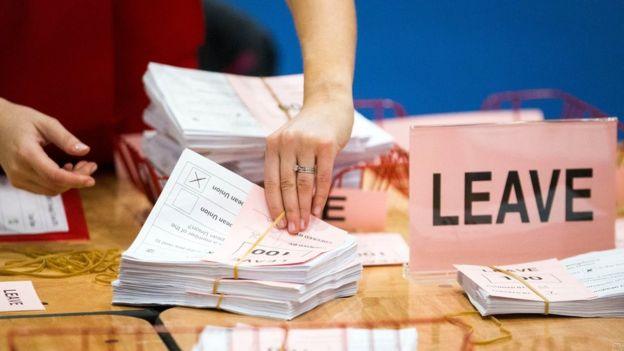SDLP leader urges voters to turn out like they did for Brexit
- Published

Mr Eastwood said if the 90,000 people who voted in the Brexit referendum turn out in March we wouldn't be 'hurtling towards direct rule'
The SDLP leader has urged the public to turn out for March's assembly elections in the same numbers as the EU referendum in June.
Colum Eastwood said if voter turnout was as high as it was for Brexit it could avoid the collapse of Stormont and a lengthy period of direct rule.
The referendum saw 63% of the electorate in Northern Ireland voting.
That was eight percentage points higher than the turnout for the Stormont election the previous month.
'Alternative power-sharing government'
Mr Eastwood told the BBC he believed that a higher turnout on 2 March would increase the chances of a change to the status quo.
Speaking to the Inside Politics programme, he argued that his party and the Ulster Unionists had shown they could work together in a spirit of co-operation, but acknowledged they would need other parties to form an alternative power-sharing government together.
Mr Eastwood said that next month's election presented a "major opportunity" to change local politics.

62.7% of the electorate voted in the referendum, 8% higher than the turnout for the May's Stormont election
"If you take the 90,000 people who voted in the Brexit referendum but didn't vote in the May election," he argued, "if those people came out, then you'd have a very different type of politics.
"We wouldn't be hurtling towards direct rule that we might not come back from. We'd be able to form a government on day one despite all the differences and all of the challenges."
'Full transparency'
The SDLP leader said he wrote some weeks ago to the Secretary of State James Brokenshire asking him to name a date for the publication of party political donations.
Previously the SDLP had opposed full transparency over donations, but Mr Eastwood said that in the wake of the Renewable Heat Incentive scandal it is right that the current rules should change.
The SDLP leader said it is unfortunate that the DUP has not revealed the identity of an English organisation which helped fund its Brexit referendum campaign.
Questioned about the Irish government's opposition to the idea of special designated status for Northern Ireland within the EU, Mr Eastwood said he didn't care about the "semantics" of what any special measures are called, but supports protection for citizens, businesses and communities who will be disadvantaged as a result of Brexit.

On reforming the petition of concern, Mrs Long argued that neither the DUP nor Sinn Féin have been genuine in their approach.
'About policy, not people'
Meanwhile, the Alliance leader Naomi Long has said she will not base her decision on joining a future Stormont executive on whether Arlene Foster is nominated again as first minister.
Both Sinn Féin and the SDLP have said they would not be prepared to participate in an executive led by Mrs Foster before she is cleared of responsibility by the public inquiry now examining the Renewable Heat Incentive scandal.
However, if Alliance is approached to take a department it will not be taking a similar line as Mrs Long believes any decision "should not be about people or personalities, but rather about policy and practice".
On reforming the petition of concern, Mrs Long argued that neither the DUP nor Sinn Féin had been genuine in their approach.
She told Inside Politics the assembly must continue to have protection mechanisms for minorities and she believes Arlene Foster's suggestion that the petitions of concern could be abolished is in order to have "no restraint on the DUP's ability, or unionists' collective ability to simply override nationalist opinion."
On the RHI scandal, the Alliance leader said the publication of the names of RHI recipients of the scheme would only be meaningful if it happened in conjunction with the release of the names of donors to political parties in Northern Ireland.
- Published24 June 2016
